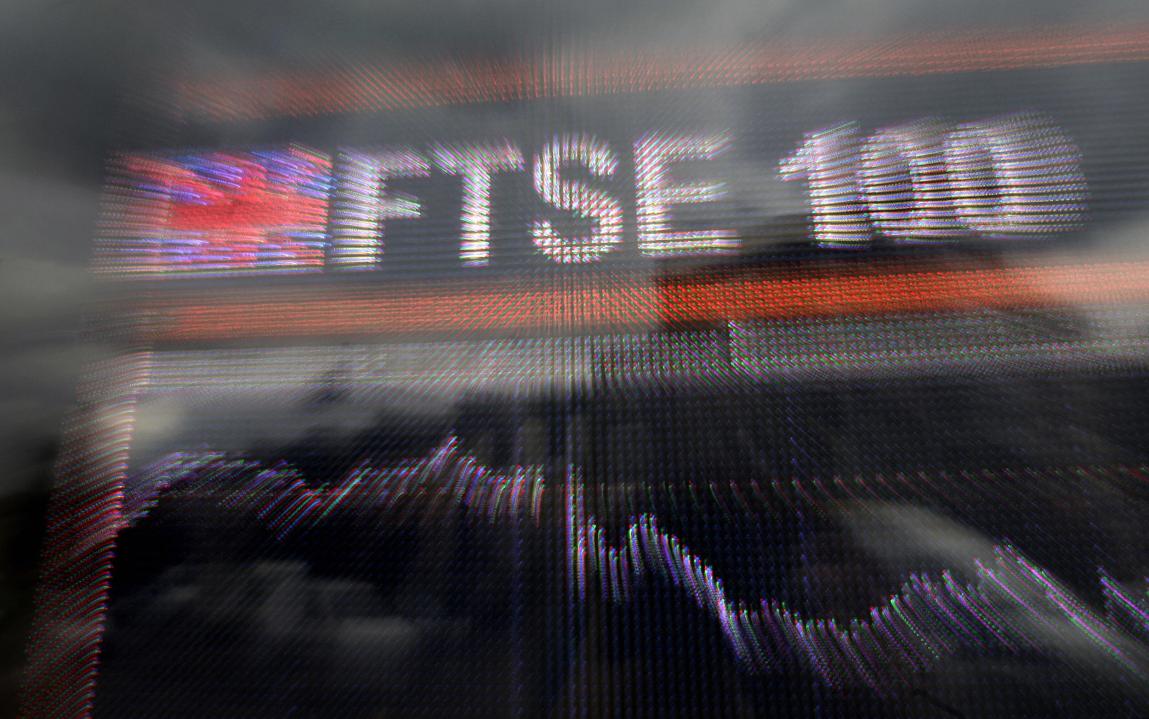It’s the morning after an 18-month campaign – and the markets have started to digest Donald Trump’s surprise election as US President.
In early trading, the FTSE 100 index jumped by 49 points, or 0.7 per cent, to 6960. The Dow Jones industrial average is on track to hit a new record high when the US stock market opens later today. Last night the Dow closed near to its highest levels. And, after touching almost $1,340 an ounce yesterday before falling back, gold is up slightly this morning at $1,291.Meanwhile, Dame DeAnne Julius, a former member of the Bank of England’s Monetary Policy Committee, told the BBC Today programme: ‘The difficulty with Trump’s rather dangerous ideas about trade is that it would involve unwinding all the supply chains that American companies have with their trading partners, not just in Mexico and Canada – their biggest trading partners – but also in China for companies like Apple. It would be very bad for the world economy if the US became heavily protectionist.’
Banks
High Street banks have pledged to provide more support to customers affected by plans to shut local branches.
Banks say they are changing guidelines and will inform people more promptly and put better trained staff in place, according to the BBC. The decision follows an independent report which said for some losing their bank branch was like a ‘bereavement’. Some 1,700 UK bank branches have disappeared in recent years as customers switch to online banking. However, it emerged yesterday that Lloyds Bank is cutting 665 jobs and closing 49 branches as it continues to cut costs in an attempt to complete its return to the private sector. Property Homebuyers are slowly returning to the property market after the uncertainty caused by the referendum, but there are not enough homes to meet demand, according to the Royal Institution of Chartered Surveyors. The Telegraph reports that buyer inquiries are up for the second month running, but there has been a further fall in instructions. In other housing news, the Council of Mortgage Lenders says that the overall arrears rate in the third quarter was the same as in the second quarter, with 0.84 per cent of all mortgages recording arrears equivalent to more than 2.5 per cent of the mortgage balance. This continues to represent the lowest arrears rate for over 20 years.The overall repossession rate also remained the same in the third quarter as the second quarter, at 0.02 per cent, representing 1,900 mortgages (of which 1,300 were owner-occupier, 600 buy-to-let).
Pay gap Women will in effect work for free until the end of 2016 thanks to the gender pay gap, The Guardian reports. The Fawcett Society says that, at the current rate of progress, it will take 60 years to close the gap. The organisation called for more action from the Government and employers to tackle pay discrimination, job ‘segregation’ and help women into senior posts. Today has been dubbed equal pay day, with the society saying the 13.9 per cent pay gap means women are in effect working for nothing from now until the end of the year. Going greenMost UK adults believe it’s important to make their home environmentally friendly – but only one in five people would be prepared to pay more money for greener energy.
Research carried out on behalf of OVO energy has revealed that most Brits care about the impact of their energy use on the environment, with over 85 per cent of people making a conscious effort to save energy at home.
A third of all people surveyed said that they always try to do what they can to be greener around the home through a number of different measures, such as using energy saving light bulbs, having double glazing or getting their lofts and walls insulated.
But when asked whether they would pay more for greener energy, Brits are not convinced. Only one in five people said that they would be prepared to see their energy bills increase if it meant a better deal for the environment.







Comments